HYALURONSÄURE: FEUCHTIGKEIT FÜR DIE HAUT
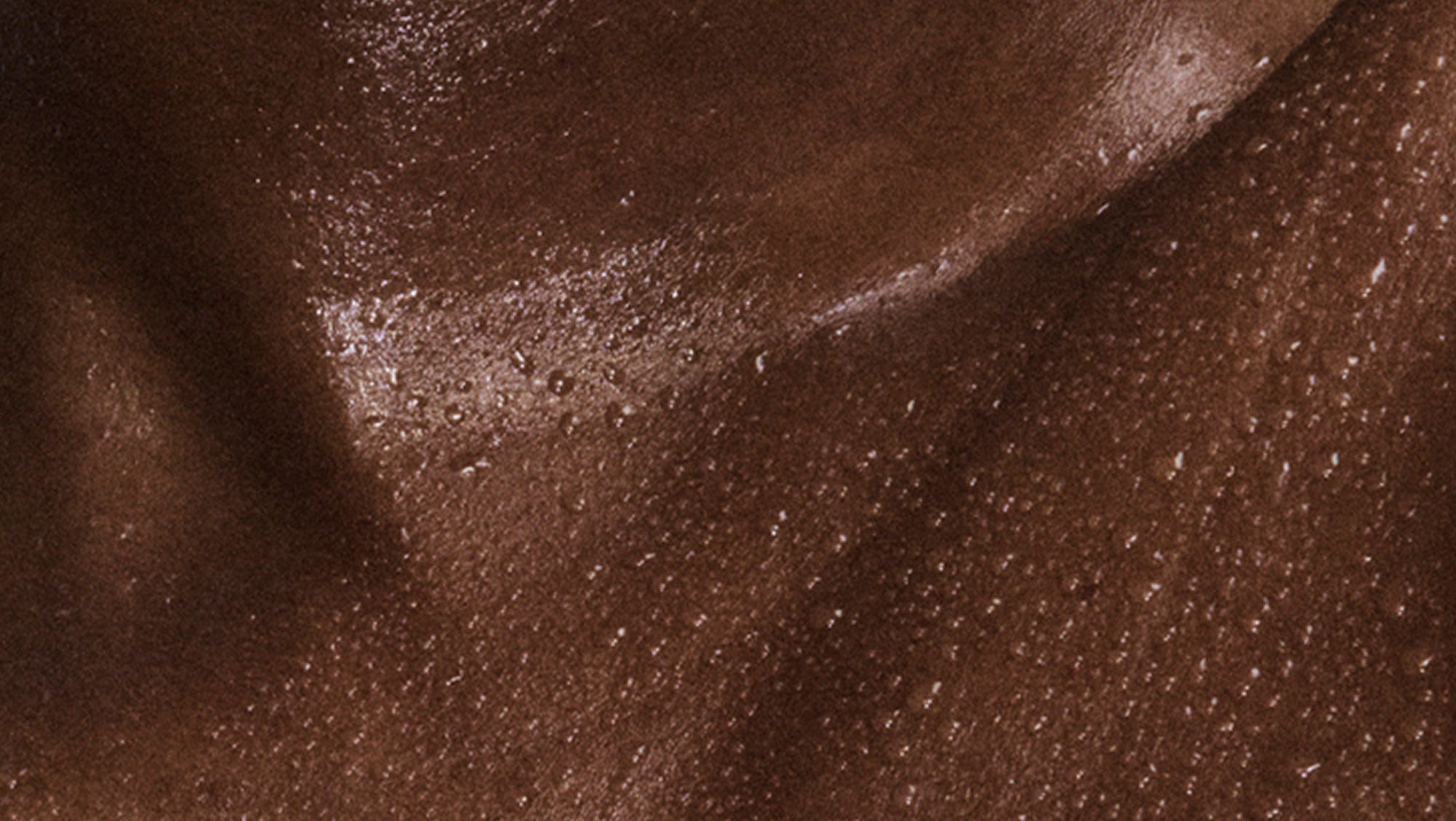
HYALURONSÄURE: FEUCHTIGKEIT FÜR DIE HAUT
Instant Hydration: Hyaluronsäure ist ein beliebter Inhaltsstoff in der Hautpflege. Sie kann Feuchtigkeit binden und so die Haut hydratisiert und aufgepolstert aussehen lassen – mit Soforteffekt.
Du suchst ein Produkt, mit dem sich deine Haut hydratisiert anfühlt? Der Essential Essence Skin Balancing Toner enthält feuchtigkeitsspendende Wirkstoffe, unter anderem Aminosäuren. Hier geht’s direkt zum Shop:
WAS IST HYLURONSÄURE?
Von der Endung “-säure” sollte man sich nicht abschrecken lassen: Hyaluronsäure ist grundsätzlich gut verträglich. Es handelt sich dabei um eine ursprünglich natürliche Substanz, die auch im Körper vorkommt und eine entscheidende Rolle in verschiedenen Geweben spielt – vor allem in der Haut. Ansonsten befindet sich die klare, gelartige Substanz in Gelenken, Augen und anderen Bindegewebsstrukturen.
Wenn Hyaluronsäure Wasser aufnimmt, wird sie transparent. Passend dazu leitet sich ihr Name von "Hyalos" ab, dem griechischen Wort für Glas.
HYALURONSÄURE IN DER HAUT
Hyaluronsäure ist ein natürlicher Bestandteil der Haut und hat die besondere Fähigkeit, große Mengen Wasser zu binden – ungefähr das Tausendfache ihres Eigengewichts. Das macht sie zu einem hervorragenden Feuchtigkeitsspeicher, der die Haut prall erscheinen lässt.
Ihre Rolle in der Haut geht noch darüber hinaus: Hyaluronsäure wirkt wie ein „Schmiermittel“ zwischen den kollagenen und elastischen Fasern der Haut, die für Straffheit und Elastizität verantwortlich sind. Sie sorgt also dafür, dass die Haut auch bei Bewegung oder Dehnung ihre Spannkraft bewahren kann.
Hyaluronsäure: Funktion und Wirkung auf die Haut
Der Begriff Hyaluron wird oft umgangssprachlich verwendet. Zudem wird Hyaluron für die Haut gerne als Wundermittel beworben – wissenschaftlich existiert es jedoch nicht als einzelne Substanz, die richtige Bezeichnung lautet “Hyaluronsäure”. Sie ist ein beliebter Inhaltsstoff in Pflegeprodukten wie Cremes und Seren fürs Gesicht, denn:
- Mit zunehmendem Alter nimmt die Produktion im Körper ab – die Folge: verringerte Hautfeuchtigkeit und mögliche Trockenheitsfältchen
- Hyaluronsäure wirkt als Feuchtigkeitsspeicher und kann die Haut prall und elastisch erscheinen lassen – eine optische Faltenreduzierung mit Hyaluronsäure ist möglich, sie ist aber kein klassischer Anti-Aging-Wirkstoff
- Hyaluronsäure ist kein Antioxidans im klassischen Sinne, kann aber indirekt dazu beitragen, oxidativen Stress zu reduzieren, indem sie die Hautbarriere stärkt und Wasser bindet
- Hyaluronsäure gehört zusammen mit Lipiden, natürlichen Feuchthaltefaktoren (NMFs), Sebum und Aquaporin zu den Substanzen, die für die Feuchtigkeit in der Haut verantwortlich sind
- Als Hauptbestandteil der extrazellulären Matrix, dem Netzwerk, das unsere Hautzellen stützt, spielt Hyaluronsäure eine entscheidende Rolle dabei, die Haut hydratisiert zu halten
- Als Feuchtigkeitsspeicher arbeitet sie zusammen mit NMFs. Das ist eine Gruppe von Substanzen wie Aminosäuren, Milchsäure und Harnstoff (Urea) sowie anderen kleineren Molekülen, die in der äußeren Hautschicht vorkommen, die Hautbarriere stärken und Feuchtigkeit binden. Sie bilden einen natürlichen Feuchtigkeitsfilm auf der Haut.
Natürliche Feuchthaltefaktoren (NMFs, engl. "Natural Moisturizing Factors") sind eine Gruppe von Substanzen, die natürlicherweise in der äußeren Hautschicht (Hornschicht) vorkommen und für die Aufrechterhaltung einer gesunden Feuchtigkeitsversorgung und Barrierefunktion der Haut entscheidend sind. Sie binden Wasser aus der Umgebung und halten es in der Haut. Zu den NMFs gehören zum Beispiel Aminosäuren und deren Derivate, Milchsäure, Glycerin und Urea.
Hyaluronsäure in der Skincare-Routine
Hyaluronsäure eignet sich nicht nur für das Gesicht, auch auf den Lippen wirkt sie feuchtigkeitsspeichernd und aufpolsternd, was die Lippenhaut praller aussehen lässt.
Mit dem Perfect Plump Collagen Lip Boost erscheinen die Lippen unter anderem mit Hilfe von Hyaluronsäure voll und aufgepolstert. Der enthaltene Plumping-Complex fördert die Durchblutung, während die feuchtigkeitsbindende Hyaluronsäure Fältchen optisch minimiert.
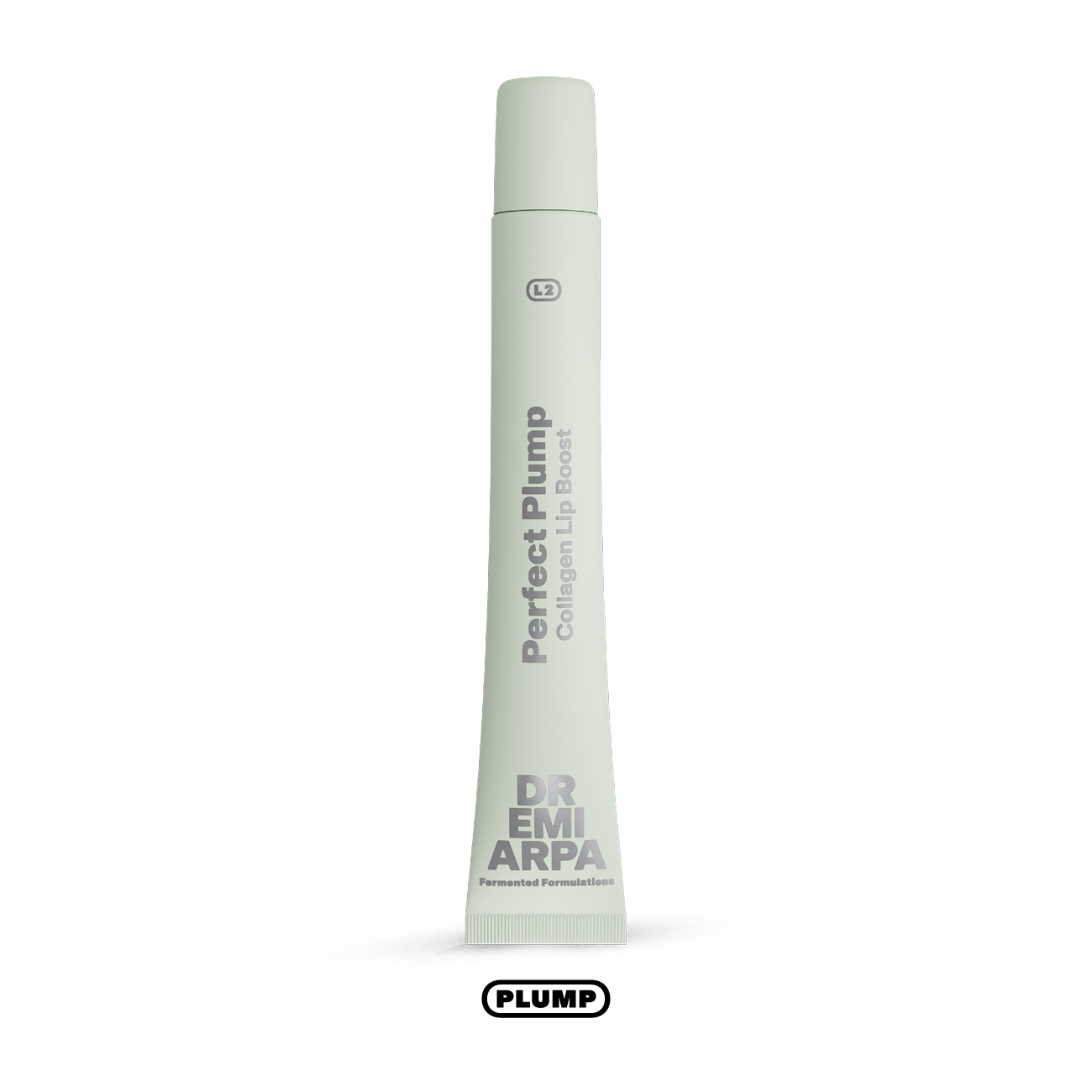
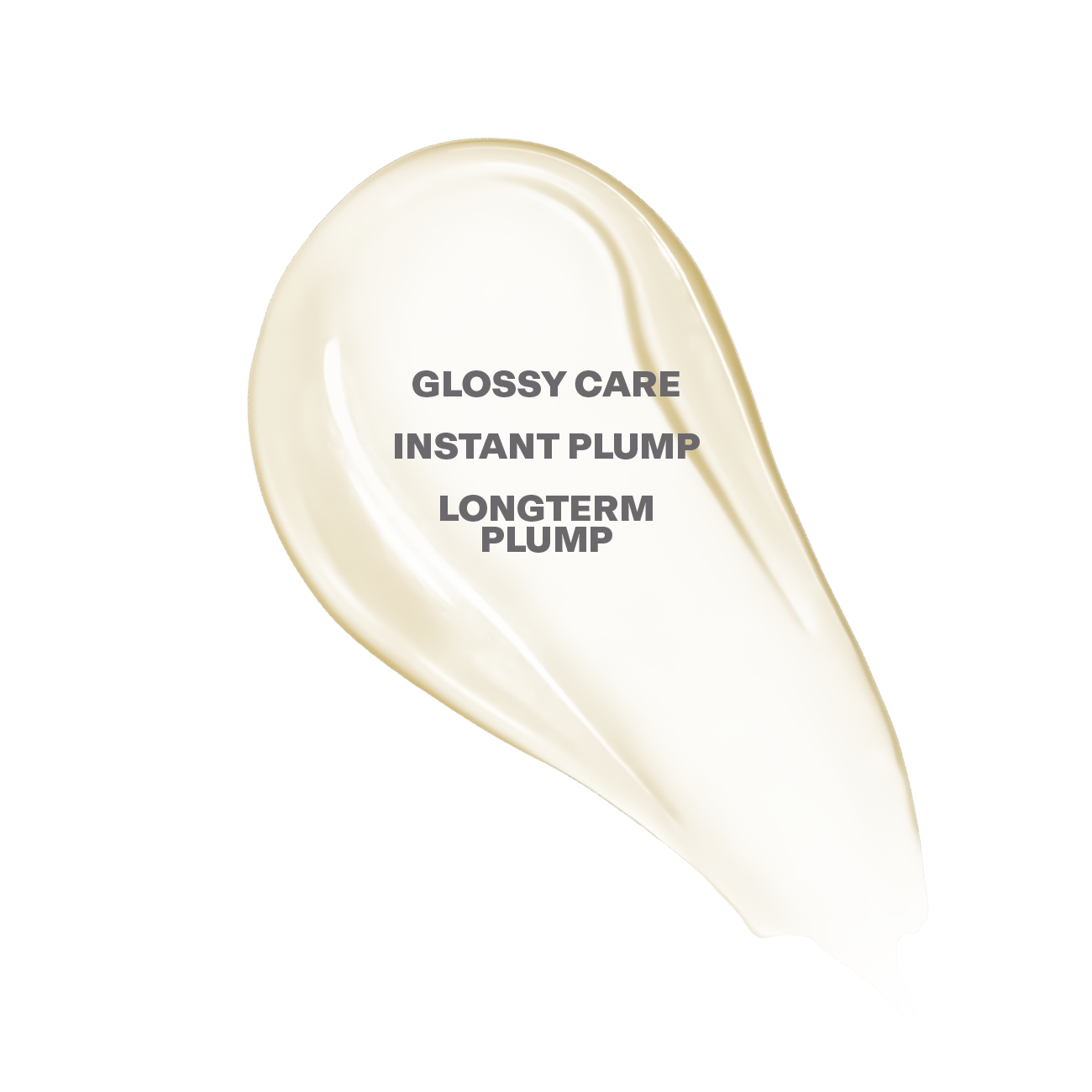
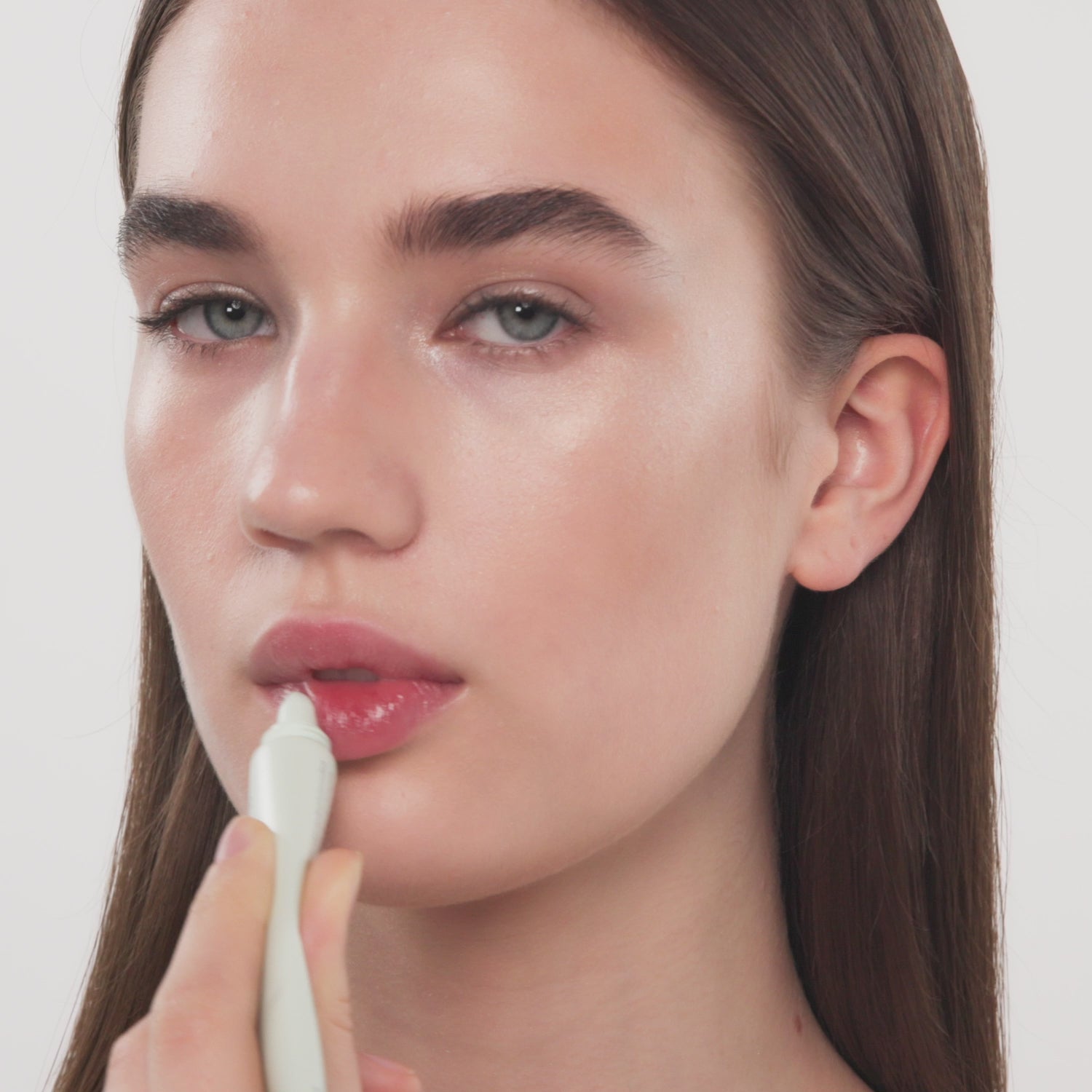
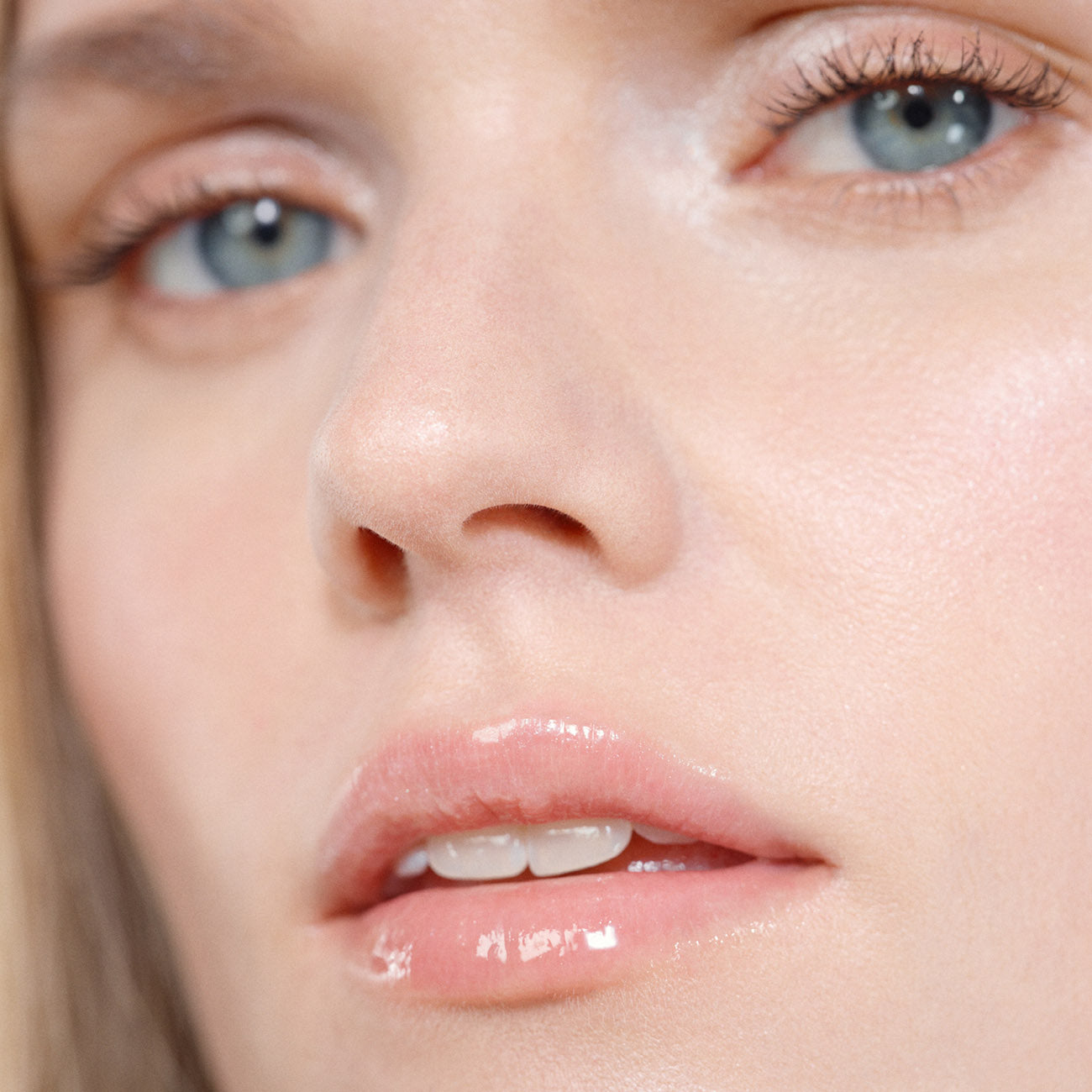
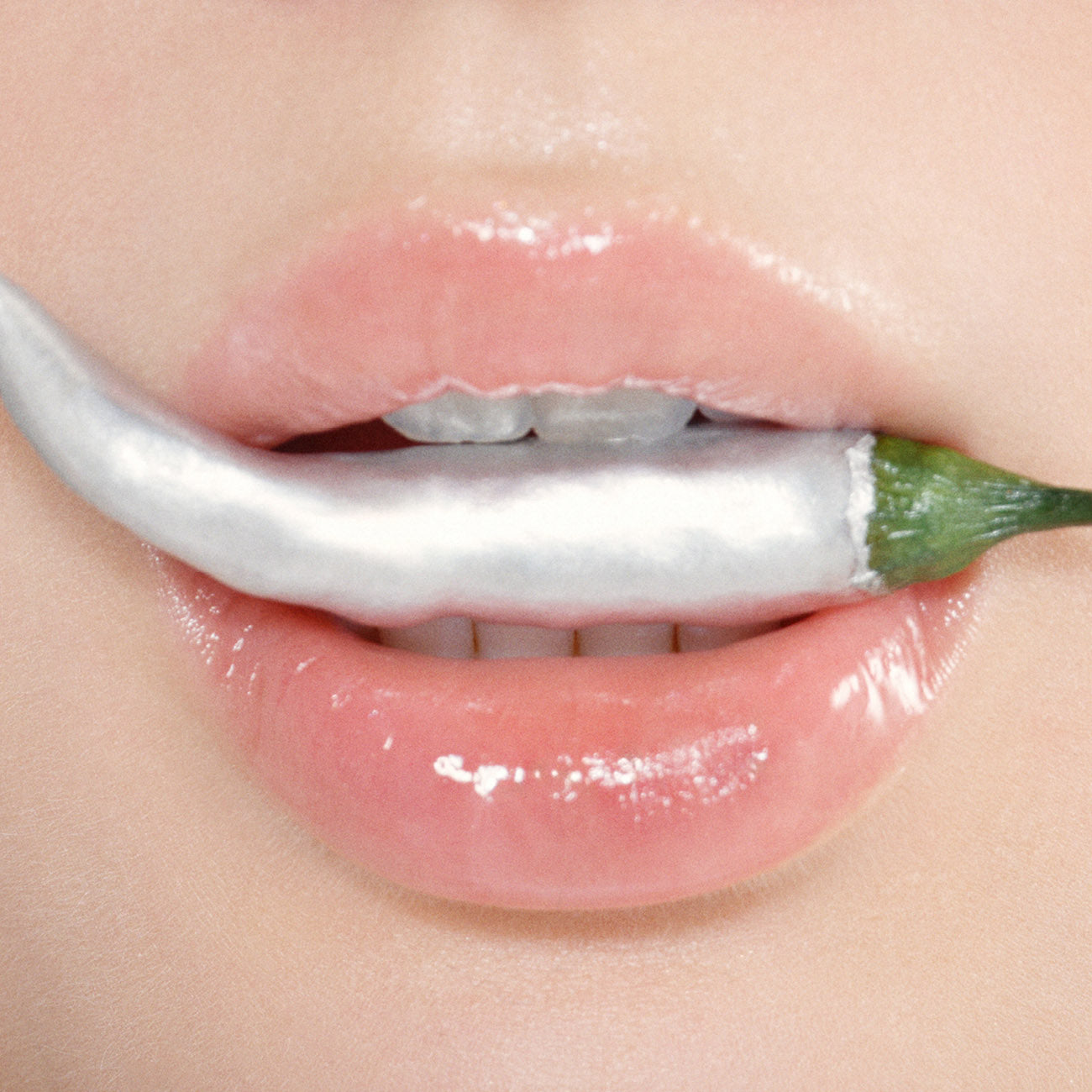
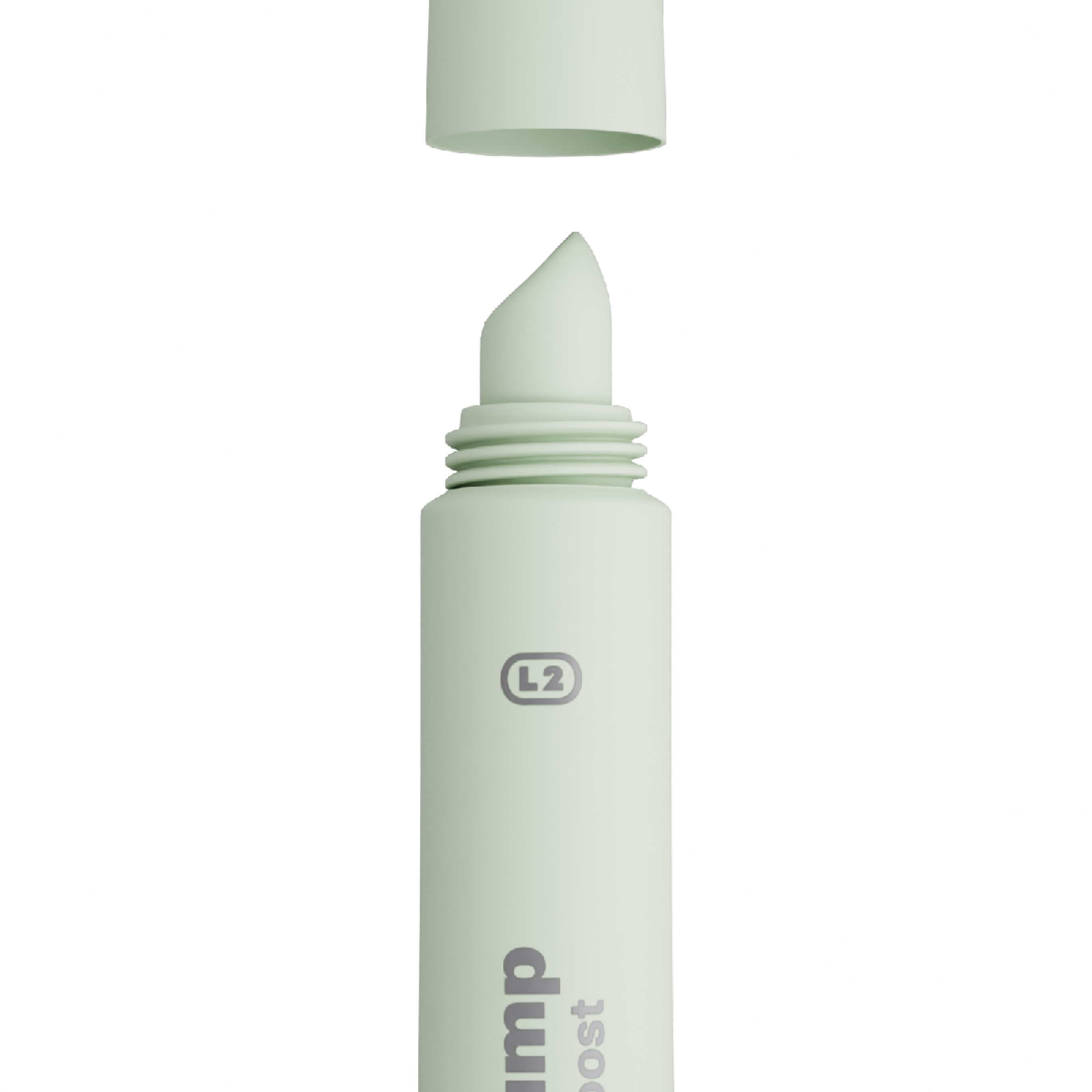

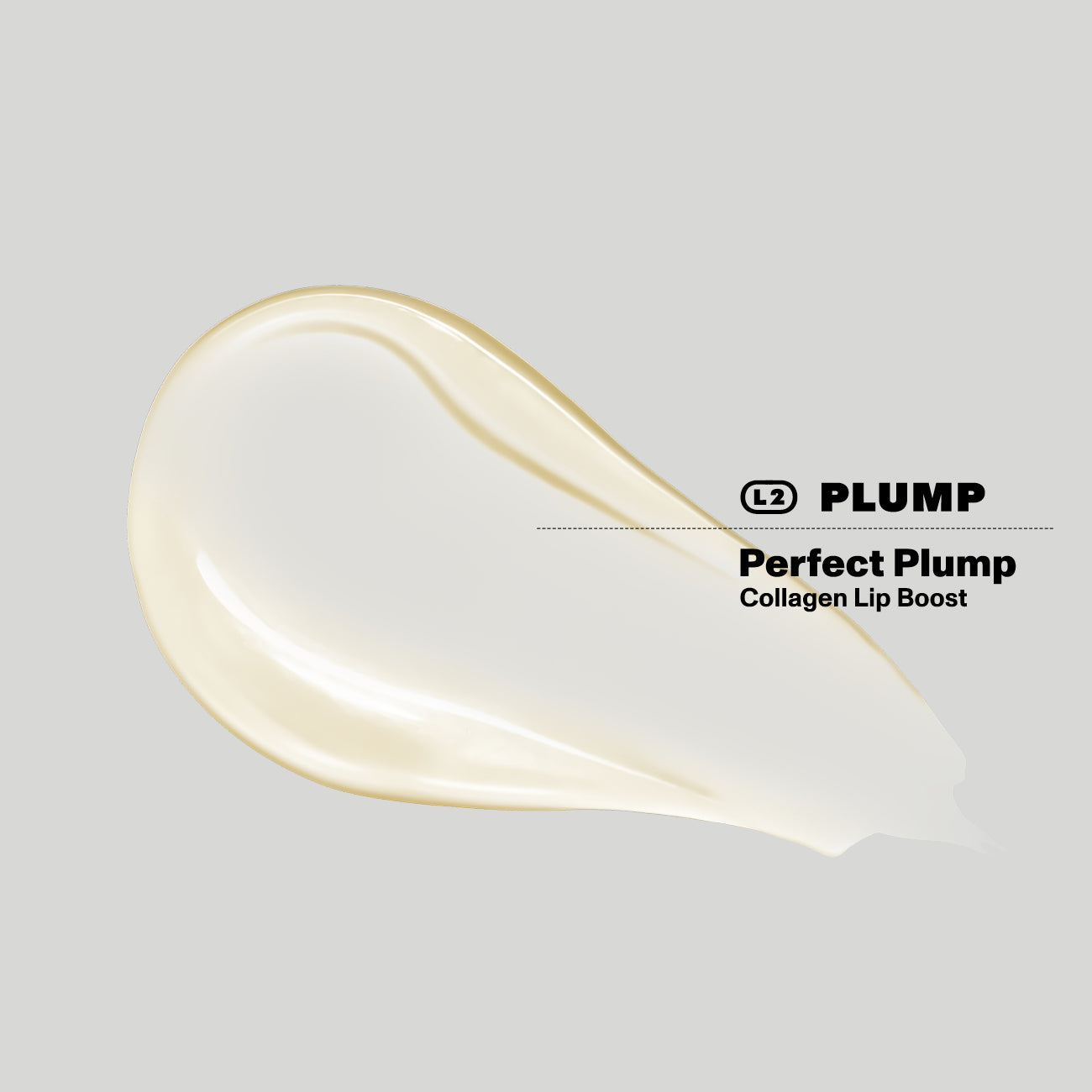
Collagen Lip Boost
- Postbiotika wirken pflegend und antioxidativ.
- Plumping Complex wirkt temporär aufpolsternd.
- Peptide^2 stimulieren Kollagensynthese und wirken aufpolsternd.
- Hyaluronsäure wirkt feuchtigkeitsspendend und aufpolsternd.
Pull off the Perfect Plump!
HYALURONSÄURE IST NICHT GLEICH HYALURONSÄURE
Ein Begriff, mehrere Arten und viele Variationen – Im Hinblick auf Hyaluronsäure gibt es ein paar wichtige Kriterien:
- In den Inhaltsstoffen von Hautpflegeprodukten wird Hyaluronsäure zum Beispiel unter den INCIs “Sodium Hyaluronate”, Sodium Hyaluronate Crosspolymer”, “Hydrolyzed Sodium Hyaluronate”, “Sodium Acetylated Hyaluronate” oder “Hyaluronic Acid” aufgeführt. "Hyaluronic Acid" (Hyaluronsäure) ist die reine Form. Die jeweilige INCI (International Nomenclature of Cosmetic Ingredients) sagt jedoch nichts über die Kettenlänge der enthaltenen Hyaluronsäure aus. Je nach verwendetem Rohstoff kann die Wirkung des Produkts variieren.
- Bei der Wahl eines Produkts mit Hyaluronsäure spielt die Molekulargröße (Kettenlänge) eine wichtige Rolle.
Denn: Hyaluronsäure besteht aus langen Zuckermolekülen, deren Größe variiert. Die Hautpenetration von Hyaluronsäure verschiedener Molekulargewichte wurde in einer Studie von Essendoubi et al. (2016) untersucht.
Das Ergebnis: Je kleiner die Moleküle sind, desto tiefer können sie in die Haut eindringen.
-> Hyaluronsäure mit niedrigem Molekulargewicht (20-300 kDa) kann die oberste Hautschicht, das Stratum corneum, durchdringen und tiefere Hautschichten erreichen – sie weist also eine höhere Hautpenetration auf als Hyaluronsäure mit höherem Molekulargewicht. Zum Vergleich: Hyaluronsäure mit hohem Molekulargewicht (mehr als 1000 kDa) bleibt zum größten Teil auf der Hautoberfläche und penetriert nicht die erste Hautschicht. Sie wirkt wie eine Barriere und hilft, den Wasserverlust zu verhindern, was einen optisch aufpolsternden Effekt hat.
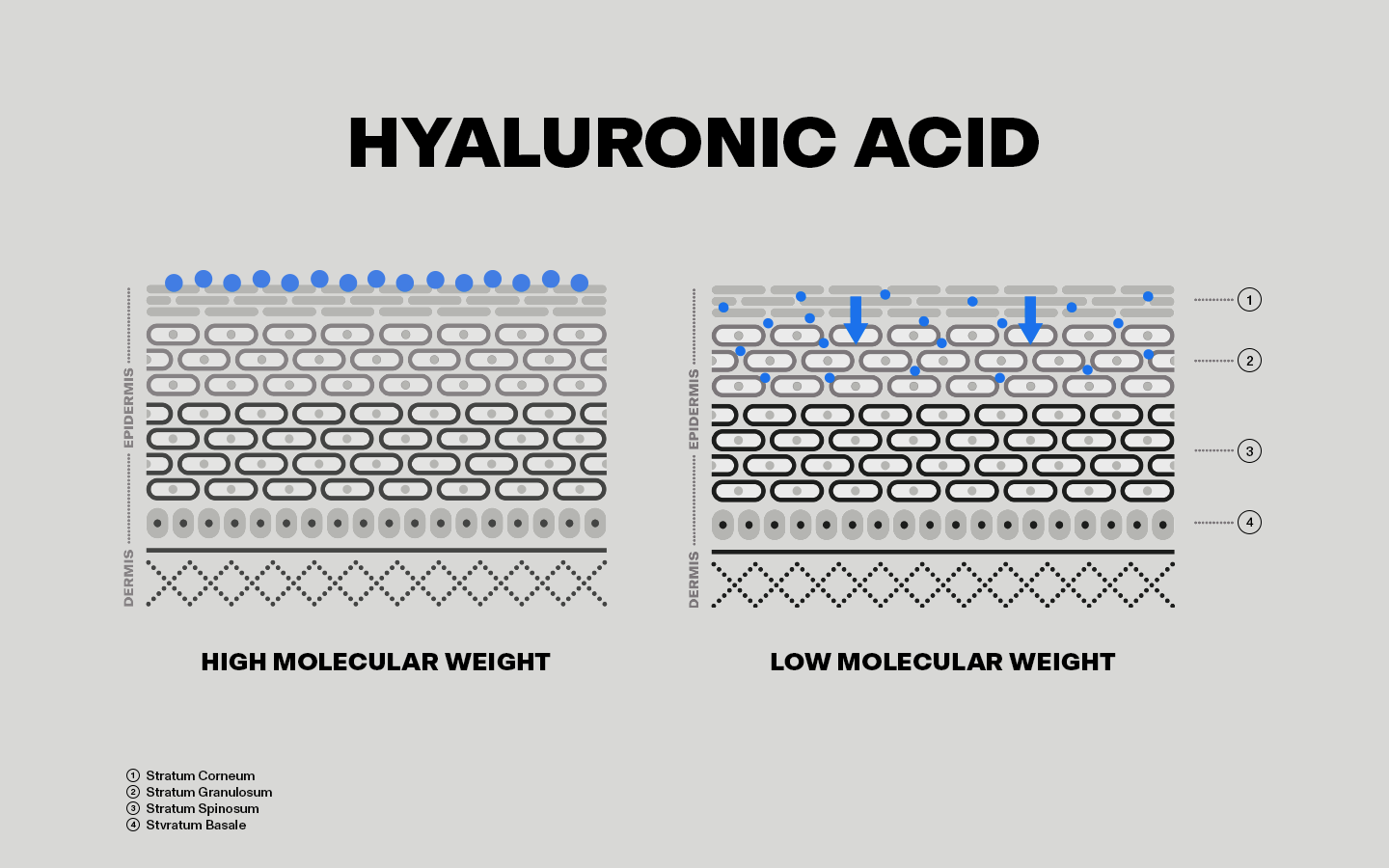
WARUM HYALURONSÄURE NICHT FÜR JEDE:N GEEIGNET IST
Hyaluronsäure ist ein hervorragender Feuchtigkeitsspeicher und kann vor allem bei dehydrierter Haut effektiv sein, da sie Wasser anzieht und bindet. Wichtig: Dehydrierte Haut bedeutet nicht gleich trockene Haut. Bei dehydrierter Haut mit einem Wassermangel kann Hyaluronsäure helfen, Feuchtigkeit zu speichern und das Hautbild wieder praller und frischer wirken zu lassen.
Bei trockener Haut hingegen, der es an natürlichen Lipiden mangelt, ist Hyaluronsäure nicht immer die beste Wahl. Sie zieht zwar Wasser an, aber ohne ausreichend Lipide kann dieses Wasser schnell wieder entweichen. Die Folge: Die Haut trocknet unter Umständen noch schneller aus. Eine reichhaltigere Pflege mit Inhaltsstoffen wie Ölen oder Ceramiden ist dann sinnvoller, um die Hautbarriere zu stärken und Feuchtigkeit langfristig zu speichern.
Ebenfalls hilfreich sind beispielsweise Wirkstoffe wie Ectoin, das in einer Pflegecreme Hautfeuchtigkeit, Hautelastizität oder die Hautoberflächenstruktur verbessern kann.
KEY TAKEAWAYS
Hyaluronsäure ist ein leistungsstarker Feuchtigkeitsspeicher und lässt die Haut hydratisiert, prall und elastisch aussehen. Da Hyaluronsäure Wasser binden kann, ist sie ein besonders beliebter Inhaltsstoff in Kosmetika für dehydrierte Haut. Hier kann sie helfen, Feuchtigkeit zu speichern und das Hautbild wieder praller und frischer wirken zu lassen. Entscheidend für die Wirksamkeit ist bei Hyaluronsäure die Molekulargröße: Kleinere Moleküle dringen tiefer in die Haut ein, während größere an der Oberfläche verbleiben und wie eine Barriere die Haut vor Feuchtigkeitsverlust schützen.
FAQ
Hyaluronsäure bindet Feuchtigkeit und sorgt dafür, dass die Haut prall und elastisch aussieht. Besonders wirksam ist sie bei dehydrierter Haut, da sie Wasser speichert und die Hautbarriere stärkt. Außerdem wirkt sie antioxidativ und schützt die Haut vor freien Radikalen.
Hyaluronsäure kann helfen, Falten zumindest optisch zu mildern, da sie die Haut mit Feuchtigkeit versorgt und für ein glatteres Hautbild sorgt. Besonders Hyaluronsäure mit niedrigem Molekulargewicht kann in tiefere Hautschichten eindringen und so die Hautfeuchtigkeit langfristig steigern, was zur Reduktion von feinen Linien und Falten beitragen kann. Wichtig: Hierbei handelt es sich lediglich um einen optischen Effekt.
Hyaluronsäure findet sich in vielen Hautpflegeprodukten, darunter Seren, Cremes und Masken. Bei DR. EMI ARPA SKIN ist sie im Perfect Plump Collagen Lip Boost enthalten, hier polstert sie die Lippen auf und versorgt sie mit Feuchtigkeit. In der ästhetischen Medizin wird sie auch in Form von Injektionen oder Fillern verwendet.
Die Wahl der Hyaluronsäure hängt von den Hautbedürfnissen und dem gewünschten Effekt ab. Niedermolekulare Hyaluronsäure kann tief in die Haut eindringen und dort Feuchtigkeit spenden, was besonders bei dehydrierter Haut effektiv ist. Hochmolekulare Hyaluronsäure liegt auf der Hautoberfläche und schützt zum Beispiel vor Feuchtigkeitsverlust.
Hyaluronsäure und Retinol (bzw. Retinoide wie auch Retinal) haben unterschiedliche Wirkungen auf die Haut. Hyaluronsäure spendet Feuchtigkeit und kann die Hautelastizität verbessern, während Retinoide die Zellregeneration anregen und die Hautstruktur verbessern können, indem sie die Kollagenproduktion stimulieren. Die Inhaltsstoffe können sich gut innerhalb einer Hautpflege-Routine ergänzen: Hyaluronsäure sorgt für Feuchtigkeit, während Retinoide das Erscheinungsbild feiner Linien und Falten zusätzlich verbessern können.
Hyaluronsäure kann grundsätzlich in jedem Alter verwendet werden, vor allem, um die Haut mit Feuchtigkeit zu versorgen und frühzeitiger Hautalterung vorzubeugen. Besonders ab dem 25. Lebensjahr, wenn die körpereigene Produktion von Hyaluronsäure allmählich sinkt, kann die Anwendung in Hautpflegeprodukten helfen, die Haut zu durchfeuchten.
Hyaluronsäure gilt allgemein als sicher in der Hautpflege, auch während der Schwangerschaft und Stillzeit.
Hyaluronsäure gilt allgemein als gut verträglich. In seltenen Fällen kann es jedoch zu Hautreizungen oder allergischen Reaktionen kommen. Falls bei dir Rötungen, Juckreiz oder Schwellungen auftreten, solltest du die Anwendung sofort beenden und dir ärztlichen Rat einholen.
Hyaluronsäure ist primär für ihre feuchtigkeitsspeichernden Eigenschaften in der Haut bekannt, aber auch für die Haare kann Hyaluronsäure etwas tun. Durch die Fähigkeit, Feuchtigkeit zu binden, kann sie die Kopfhaut hydratisiert halten und die Grundlage für gesundes Haarwachstum fördern. Das kann zu gesünder aussehendem Haar führen.
Baldwin, H., Del Rosso, J. (2024). Going Beyond Ceramides in Moisturizers: The Role of Natural Moisturizing Factors.. Journal of drugs in dermatology: JDD, 23 6, 466-471.
Barel A.O., Paye M., Maibach H.I. (Eds.). (2010). Handbook of Cosmetic Science and Technology (3rd ed.). CRC Press.
Bukhari, S., Roswandi, N., Waqas, M., Habib, H., Hussain, F., Khan, S., Sohail, M., Ramli, N., Thu, H., Hussain, Z. (2018). Hyaluronic acid, a promising skin rejuvenating biomedicine: A review of recent updates and pre-clinical and clinical investigations on cosmetic and nutricosmetic effects. International journal of biological macromolecules, 120 Pt B, 1682-1695.
Björklund, S., Engblom, J., Thuresson, K., Sparr, E. (2013). Glycerol and urea can be used to increase skin permeability in reduced hydration conditions.. European journal of pharmaceutical sciences : official journal of the European Federation for Pharmaceutical Sciences, 50 5, 638-45.
Essendoubi M., Gobinet C., Reynaud R., Angiboust J. F., Manfait M., Piot O. (2016). Human skin penetration of hyaluronic acid of different molecular weights as probed by Raman spectroscopy. Skin Research and Technology, 22(1), 55–62.
Heinrich, U., Garbe, B., Tronnier, H. (2007). In vivo assessment of Ectoin: a randomized, vehicle-controlled clinical trial. Skin pharmacology and physiology, 20(4), 211–218.
Price, R., Berry, M., Navsaria, H. (2007). Hyaluronic acid: the scientific and clinical evidence. Journal of plastic, reconstructive & aesthetic surgery : JPRAS, 60 10, 1110-9.

















